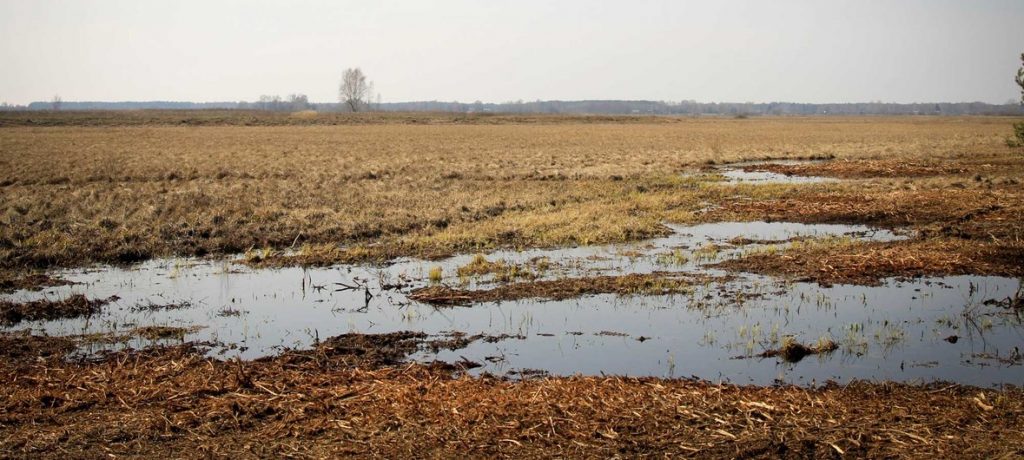While the tension at the EU-Belarus border is overshadowed by the risk of an imminent Russian invasion of Ukraine the humanitarian situation for irregular migrants in the Polish border region is still a matter of concern for the EU.
At a hearing on Monday (7 February) in the European Parliament’s Committee on Civil Liberties, Justice and Home Affairs (LIBE), the Polish deputy commissioner for human rights (ombudsman) Hanna Machinska described the situation of migrants in the border region with Belarus as a humanitarian disaster.
She condemned the conditions in the detention centres for migrants and asylum seekers as worse than in prisons. In her opinion, Poland is violating both its constitution and international and EU law by pushbacks of migrants and by not allowing them to file applications for asylum and international protection. She told the MEPs that many of the migrants have been tortured in their home countries.
As previously reported, the Polish authorities last year declared a state of emergency in its border region with Belarus and refuses access to it for Polish and international human rights organisations, the Red Cross, journalists and EU officials, although it is also an EU external border. This has not changed.
Even the Polish ombudsman institution has difficulties entering the border region and has been stopped by the police or border guards. Access to the region is decided by the local police commander, according to Hanna Machinska. The Ombudsman’s reports are classified and were until the hearing at the Parliament not even shared with the EU.
Asked by The Brussels Times for a comment, a spokesperson replied that it has seen the reports on the conditions in the Polish detention centres. “It is the responsibility of the Polish authorities to manage these centres adequately, in line with European law. This includes providing dignified reception conditions and ensuring a safe and secure environment.”
Media should also be able to work safely everywhere in the EU and beyond. “As Vice-President Margaritis Schinas said, we cannot stress enough the importance of granting sustained humanitarian access on both sides of the border.”
The EU continues to offer support at short notice to Poland to handle the migration situation but until now Poland has declined to avail itself of the support. This includes financial support as well as operational help in reception matters from the European Asylum Support Office, as is being provided in Lithuania and Latvia.”
The Commission’s contacts with the Polish authorities regarding the situation of the migrants continue, the spokesperson added. Home Affairs Commissioner Ylva Johansson is expected to travel again to Poland in the coming weeks where she will meet with government officials, Frontex and representatives from civil society.
In the meantime, the Commission’s proposal last December to put into place temporary asylum and return measures, based on article 78(3) of the EU Treaty, to assist Latvia, Lithuania and Poland in addressing the emergency situation at the EU’s external border with Belarus has not been implemented.
According to the Commission, discussions about the proposal are currently on-going in the Council and led by the French EU presidency. “The Commission continues to play its role in these consultations.”
“The situation in the border regions is very dire and no access is granted to human rights NGOs,” said MEP Terry Reintke at a press briefing on Thursday. “We want to see a stronger reaction from the Commission.” She is European Parliament rapporteur on the Rule of Law in Europe Report for 2021 and Greens/EFA shadow rapporteur for Poland.
Rule of law conditionality mechanism
Another rule of law issue linked to Poland is the delay in the application of the conditionality mechanism concerning funding to EU member states under their national recovery and resilience plans. The mechanism allows for the suspension or reduction of EU funding to member states with focus on financial irregularities.
According to a Council decision further legal clarification by the European Court of Justice (ECJ) was required, following legal complaint by the Polish and Hungarian governments against the mechanism. The ruling is expected next week (16 February). A plenary debate with Commission President von der Leyen will take place on the same day.
The Advocate-General of the Court issued an opinion in beginning of December last year stating that the actions by Hungary and Poland against the rules on conditionality should be dismissed by the Court.
Despite calls by the European Parliament to activate the mechanism, the Commission has not yet finalised the draft guidelines on the application of the mechanism while waiting for the ECJ ruling. In the meantime, the Commission is not proposing any measures under the mechanism but has assured that the mechanism can be applied retroactively and that no cases will be lost.
The guidelines have been informally consulted with the European Parliament and the member states. The Commission says that it intends to finalize them in light of the upcoming judgement of the Court. Following that, they will be adopted by the Council and shared with the Parliament, as well as becoming a public document.
The Parliament has filed a court case against the Commission for the delay in triggering the mechanism. “The Commission has to act now,” said MEP Terry Reintke, “The Parliament’s patience has been stretched to the limit.”
According to Reintke and legal experts consulted by the Parliament, the guidelines were not a pre-condition to activate the mechanism. She added that there is a fear in the Parliament that the Commission might not activate the mechanism for political reasons, even after the guidelines have been finalised.
Update: The Commission confirmed on Monday's press briefing that President von der Leyen will not attend the plenary debate about the rule of law conditionality mechanism and that it will be represented by Commissioner Johannes Hahn who is in charge of the mechanism.
M. Apelblat
The Brussels Times

